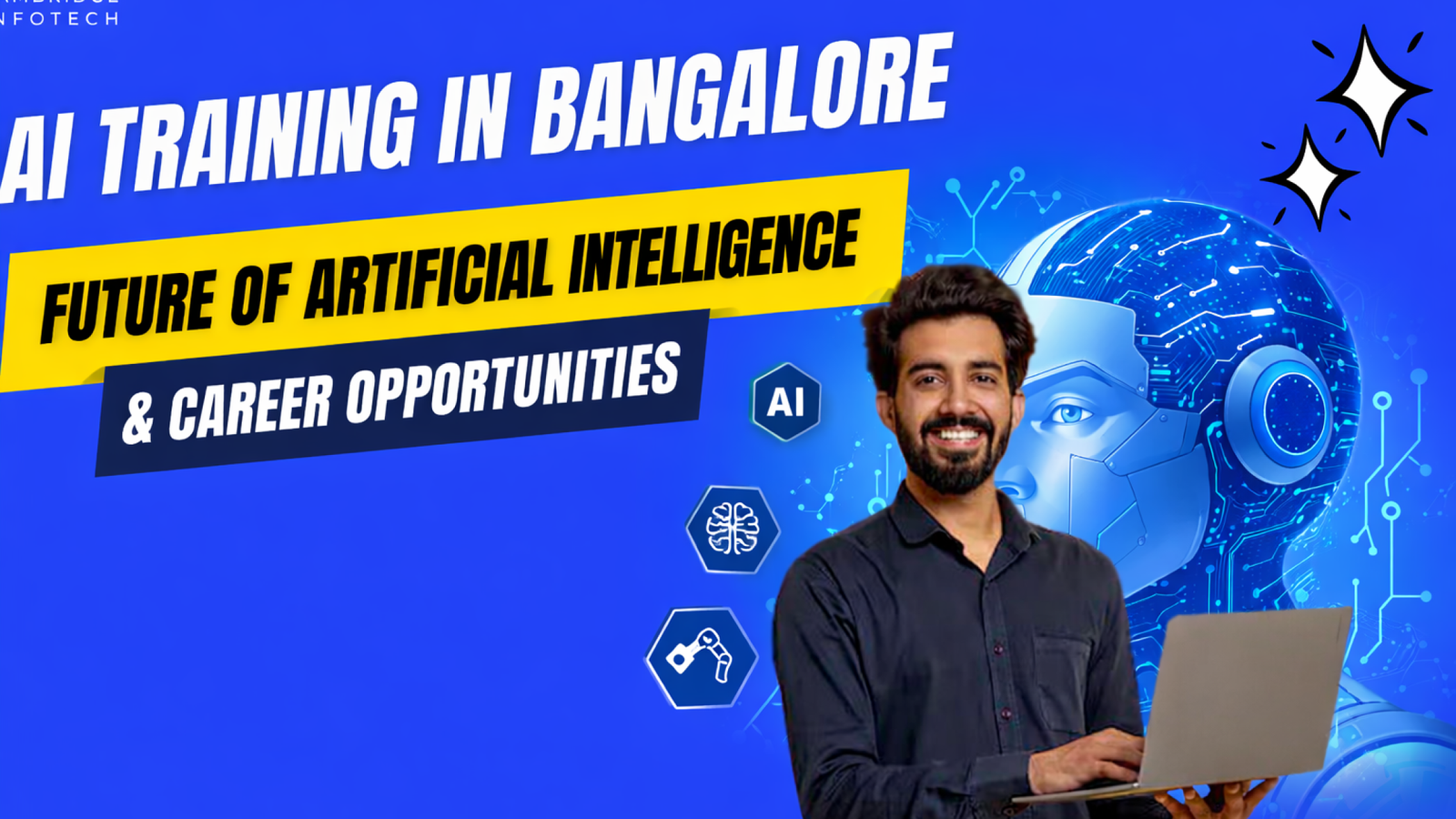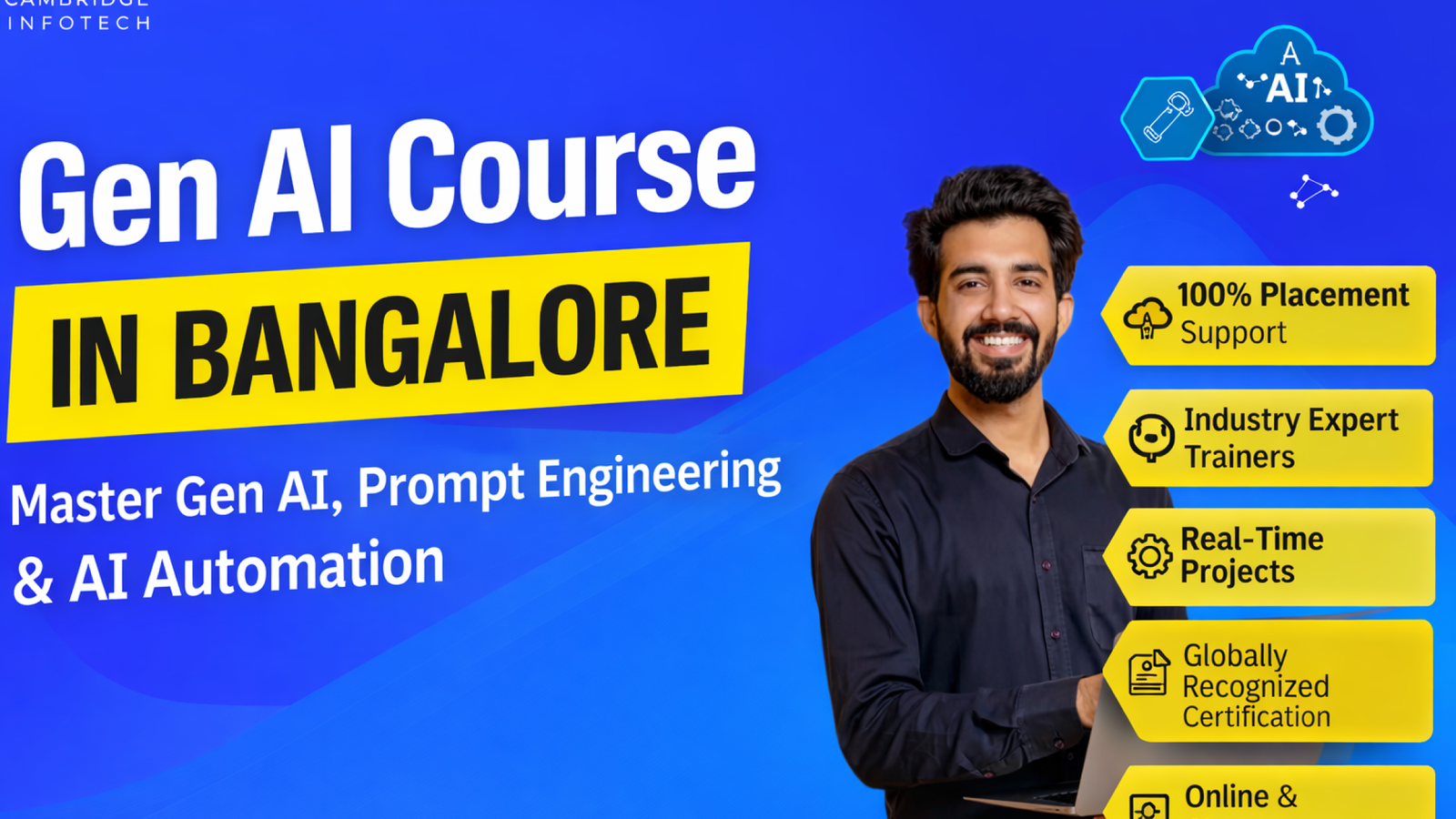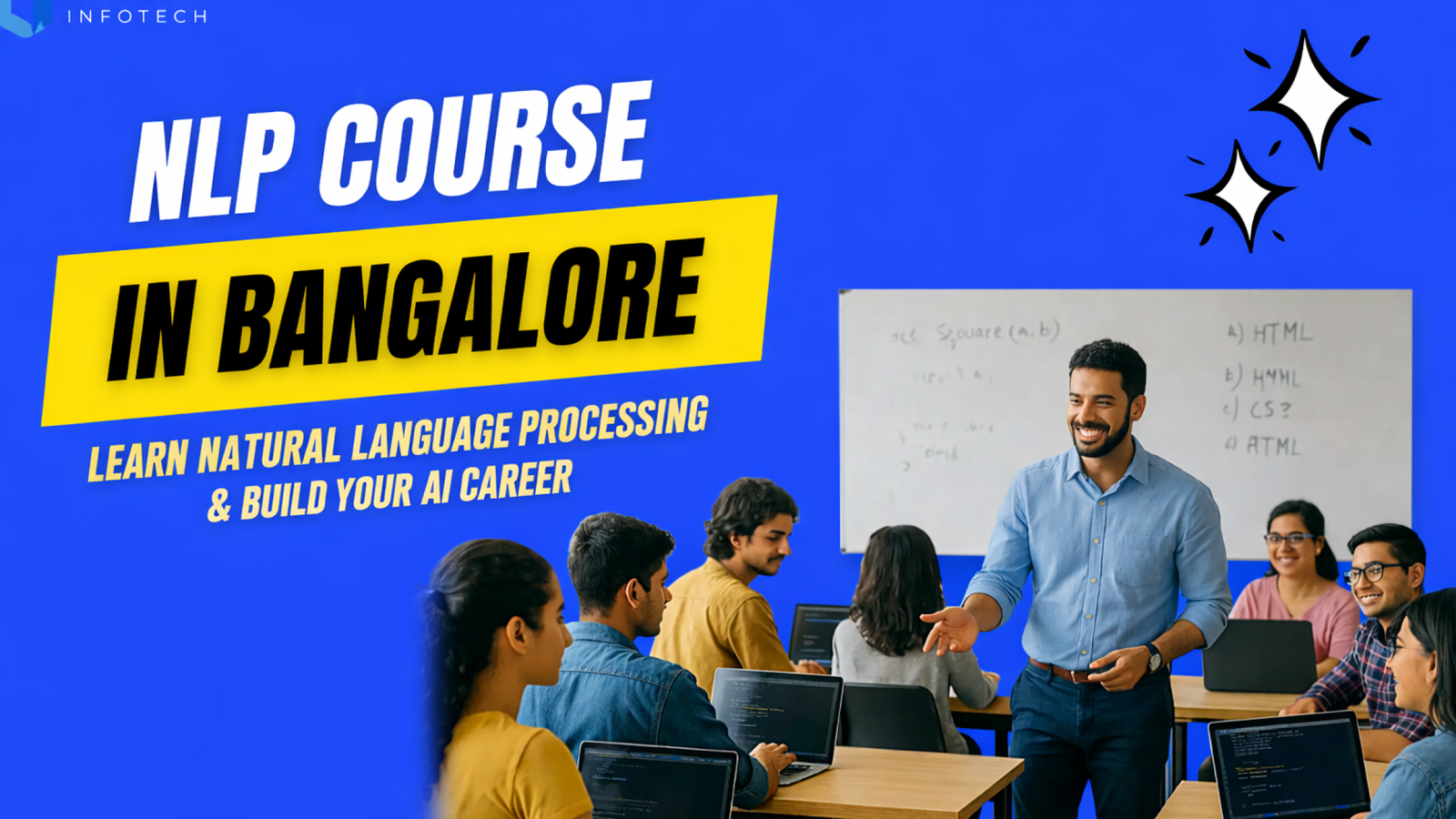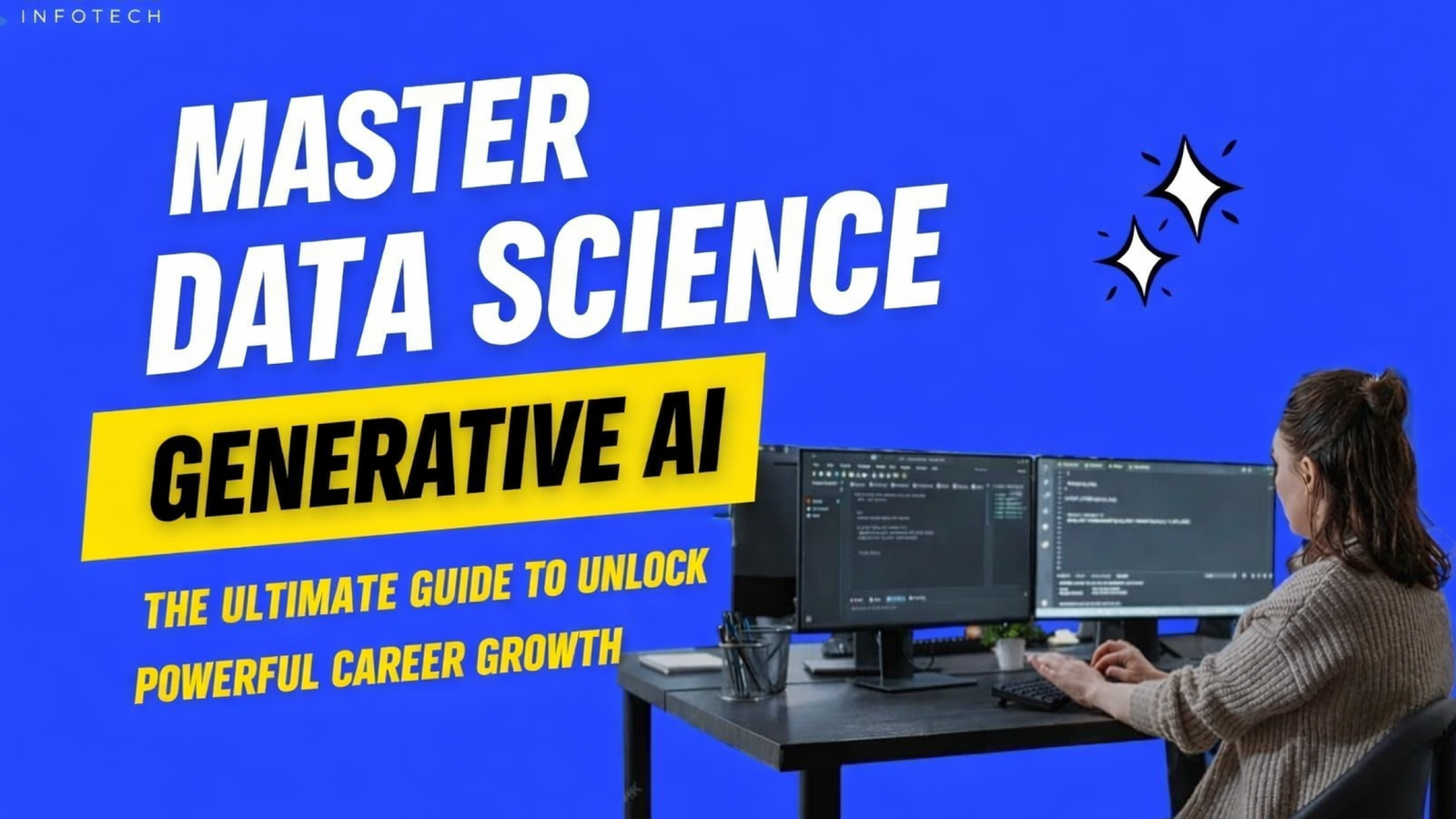From Code to Career: Mastering Data Science in Bangalore’s Innovation Hub.
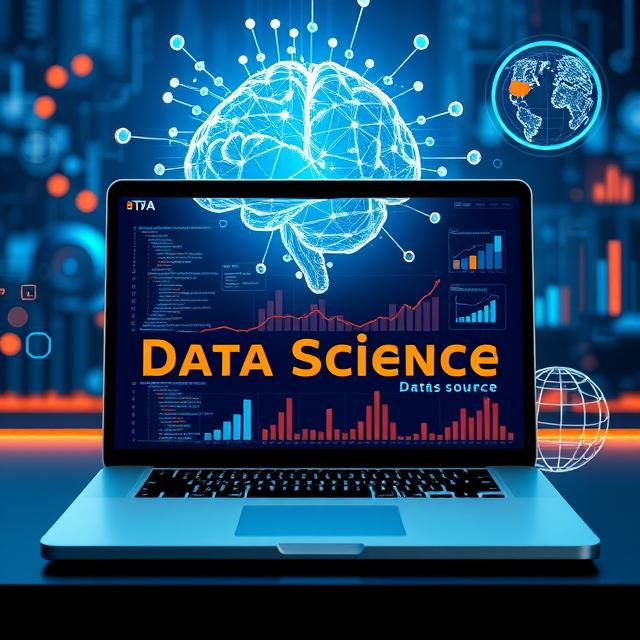
Data Science Course in Bangalore: Your Comprehensive Guide
Bangalore, the Silicon Valley of India, is a thriving hub for technology and innovation. It’s no surprise that the demand for skilled data scientists is skyrocketing in this city. If you’re looking to launch or advance your career in this exciting field, a high-quality data science course in Bangalore is your essential stepping stone.
This guide provides a comprehensive overview of what to look for in a data science course, key considerations, and a glimpse into the thriving data science ecosystem in Bangalore.
Why Data Science in Bangalore?
- Tech Hub Advantage: Bangalore houses numerous multinational corporations, startups, and research institutions, creating a rich ecosystem for data science professionals.
- Abundant Job Opportunities: The city boasts a plethora of data science roles across various industries, including IT, finance, healthcare, e-commerce, and more.
- Networking Opportunities: Bangalore’s vibrant tech community facilitates valuable networking opportunities with industry experts and fellow learners.
- Industry-Relevant Curriculum: Reputable institutes in Bangalore design courses that are aligned with the latest industry trends and demands.
Key Considerations When Choosing a Data Science Course:
- Curriculum Depth and Breadth:
- Ensure the curriculum covers essential concepts like statistics, probability, machine learning, deep learning, data visualization, and big data technologies.
- Look for courses that offer hands-on experience with popular tools and libraries like Python (NumPy, Pandas, Scikit-learn, TensorFlow, PyTorch), R, SQL, and cloud platforms (AWS, Azure, GCP).
- A strong curriculum includes coverage of data preprocessing, feature engineering, model selection, and evaluation.
- Faculty Expertise and Industry Connections:
- Choose a course taught by experienced instructors with relevant industry experience and strong academic credentials.
- Look for institutes that have tie-ups with industry partners, providing opportunities for internships, projects, and placements.
- Instructors that are current with the rapidly changing data science landscape are very important.
- Hands-on Learning and Projects:
- Practical experience is crucial in data science. Opt for courses that emphasize hands-on learning through real-world projects and case studies.
- Look for opportunities to work on projects that simulate industry scenarios and build a strong portfolio.
- Capstone projects that allow you to demonstrate a wide variety of skills are very valuable.
- Placement Assistance and Career Support:
- Inquire about the institute’s placement record and career support services.
- Look for institutes that offer resume building, interview preparation, and job placement assistance.
- A strong alumni network is a very good indicator of future career success.
- Learning Format and Flexibility:
- Consider your learning preferences and choose a format that suits your needs, such as online, offline, or hybrid.
- Evaluate the course schedule and ensure it aligns with your availability.
- Online courses can offer great flexibility, but in person courses can offer more direct interaction with instructors.
- Infrastructure and Resources:
- If attending in person, assess the institute’s infrastructure, including computer labs, libraries, and other learning resources.
- For online courses, ensure the platform provides access to necessary software, datasets, and technical support.
- Course Fees and Value for Money:
- Compare the course fees with the curriculum, faculty expertise, and placement assistance offered.
- Consider the return on investment and choose a course that provides value for your money.
- Consider if payment plans are available.
Key Skills Covered in a Data Science Course:
- Programming: Python, R, SQL
- Statistics and Probability: Hypothesis testing, regression analysis, probability distributions
- Machine Learning: Supervised and unsupervised learning, classification, regression, clustering
- Deep Learning: Neural networks, convolutional neural networks (CNNs), recurrent neural networks (RNNs)
- Data Visualization: Matplotlib, Seaborn, Tableau, Power BI
- Big Data Technologies: Hadoop, Spark, cloud computing
- Data Wrangling and Preprocessing: Cleaning, transforming, and preparing data for analysis
- Model Evaluation and Deployment: Assessing model performance and deploying models in production
Bangalore’s Data Science Ecosystem:
- Leading Tech Companies: Companies like Google, Amazon, Microsoft, IBM, and Flipkart have a strong presence in Bangalore, offering numerous data science job opportunities.
- Startups: Bangalore is home to a thriving startup ecosystem, with many startups focusing on data-driven solutions.
- Research Institutions: Institutions like the Indian Institute of Science (IISc) and the International Institute of Information Technology Bangalore (IIIT-B) contribute to cutting-edge research in data science.
- Meetups and Conferences: Bangalore hosts numerous data science meetups and conferences, providing opportunities for networking and knowledge sharing.
Choosing the Right Course:
- Research reputable institutes and universities offering data science courses in Bangalore.
- Read reviews and testimonials from past students.
- Attend information sessions and speak with course advisors.
- Evaluate your learning goals and choose a course that aligns with your aspirations.
Learn more about :
Free Web Development Courses in 2025 : The article highlights the growing demand for web developers and the availability of flexible, high-quality free courses in 2025. It mentions several options, including freeCodeCamp, which covers front-end and back-end development, and The Odin Project, which focuses on full-stack development through real-world projects. Other resources include Harvard’s CS50, Mozilla’s MDN Web Docs, Codecademy, Khan Academy, and Google’s Web Fundamentals. The article also suggests YouTube channels and emphasizes the importance of setting goals and practicing regularly for effective learning.
Building a Standout Web Developer Portfolio in 2025 : A strong web developer portfolio is crucial for showcasing skills and building credibility. A standout portfolio features diverse projects, from frontend to full-stack, within a clean and simple website design. Detailed project descriptions, visuals, and links to live demos and code repositories are essential. Benefits include standing out in a competitive job market and establishing a professional presence. Cambridge Infotech also offers web development courses to help students build impressive portfolios.
Cambridge Infotech – Your Path to Full Stack Mastery : Cambridge Infotech offers a comprehensive Full Stack Web Development Course designed for beginners and experienced developers alike. The curriculum covers both frontend and backend technologies, including HTML, CSS, JavaScript, Node.js, and databases. With expert-led training and hands-on projects, you’ll gain practical skills and build a strong portfolio. The course also provides career support and flexible learning options to help you achieve your goals. Whether you’re switching careers or expanding your skillset, this course equips you for success in the dynamic world of web development.
Web Development Roadmap 2025 – A Summary : This article serves as a guide for aspiring web developers, outlining the essential skills and technologies for 2025. It highlights the increasing demand for web developers due to online business growth and emerging technologies. The roadmap covers foundational web development concepts, core technologies like HTML, CSS, and JavaScript, and advanced topics such as frontend frameworks and backend development. It also emphasizes the importance of DevOps, continuous learning, portfolio building, and networking. Enrolling in structured courses, such as those offered at Cambridge Infotech, is recommended for accelerated learning and career support.
Cybersecurity Salaries in India: A Growing Field : The demand for cybersecurity professionals in India is rapidly increasing, leading to competitive salaries. Entry-level positions can expect an average annual salary between ₹3.5 and ₹6 lakhs. Experienced professionals with specialized skills can earn upwards of ₹15 lakhs per year. Factors like experience, certifications, and location significantly influence salary packages. As cyber threats become more sophisticated, the cybersecurity field in India offers lucrative career prospects.
The Future of Data Science and Artificial Intelligence by 2025 : By 2025, data science and artificial intelligence (AI) are poised to revolutionize industries, driving innovation and efficiency across sectors. Advances in machine learning algorithms and big data analytics will enable businesses to make more informed, real-time decisions. Ethical AI and responsible data usage will become central to building trust and ensuring transparency in AI-driven solutions. The integration of AI with IoT and edge computing will further enhance predictive capabilities and automation. As these technologies evolve, organizations must adapt to stay competitive in an increasingly data-driven world.





